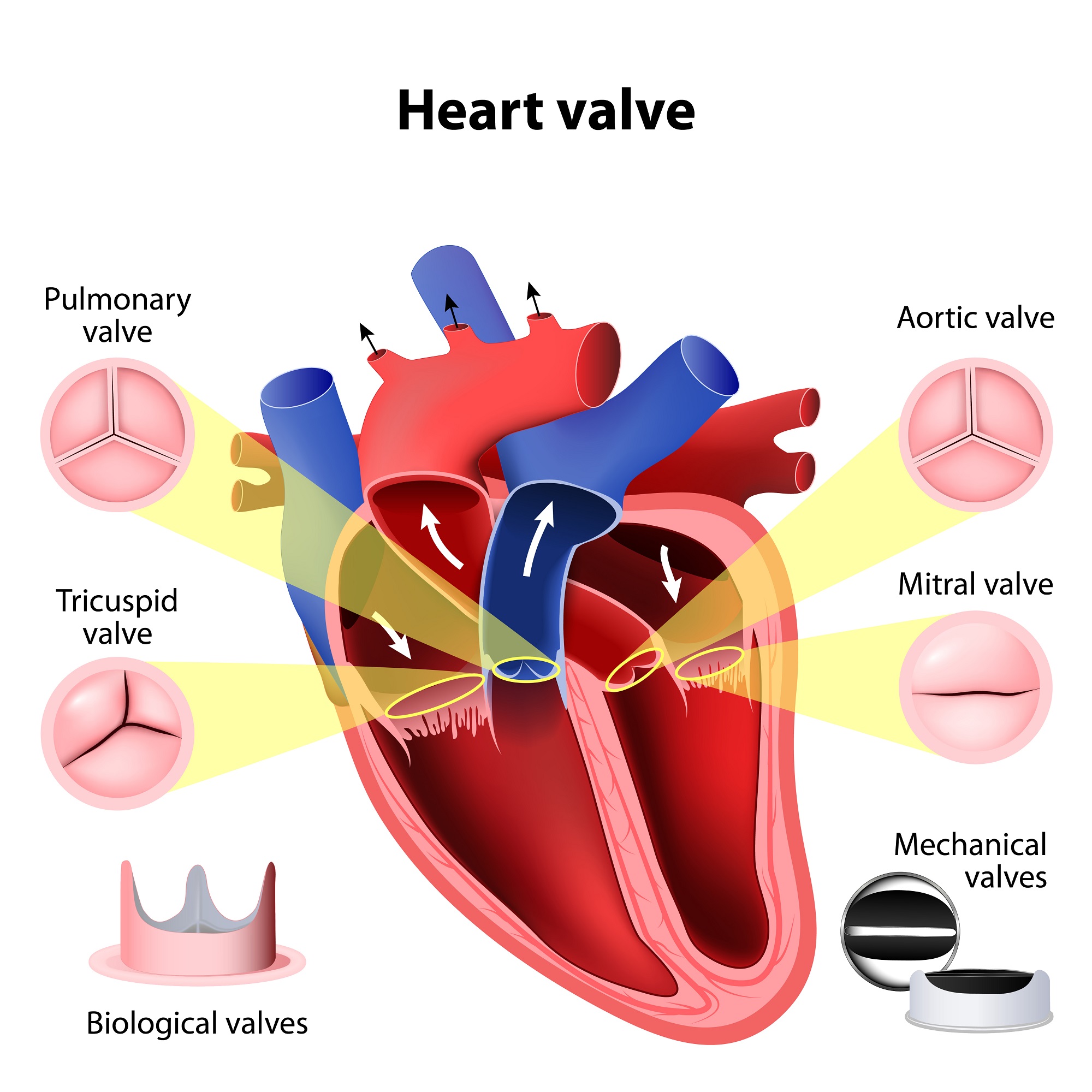Heart valve disease occurs when one or more of the heart’s four valves work improperly. Heart valves ensure that blood flows through the heart in the right direction. Heart valve diseases lead to several conditions. They reduce the quality of life of a person and can even be life-threatening.
Heart valves
- Tricuspid
- Mitral
- Pulmonary
- Aortic
What is heart valve disease
There are several types of heart valve diseases that affect the functioning of the heart. However, there are three common types of heart valve disease as per their mechanism – stenosis, atresia, and regurgitation.
- Regurgitation is reverse flow of blood. It occurs mainly due to prolapse and is common with the mitral valve.
- Stenosis is a condition where there is thickening of the heart valves. This prevents proper flow of blood.
- In case there is no opening for the heat valve, then it leads to atresia
Many people live with heart valve defects without showing up any symptoms of heart disease. However, in the case of advanced heart valve disease, people might experience heart failure, or sudden cardiac death.
How do heart valves function?
While the heart beats, blood entering the heart comes into the atria (the upper chambers of the heart). After blood fills these chambers, both the tricuspid and mitral valves that are located under these two upper chambers open up. This allows blood to flow into the ventricles (the lower chambers of the heart).
After this, the ventricles contract leading to the tightening of the mitral and tricuspid valve. This ensures that blood does not regurgitate into the atria. With the contraction of the ventricles, blood flows through pulmonary and aortic valves. As the pulmonary valve opens, it allows blood to flow into the right ventricle and then to the pulmonary artery.
When the aortic valve opens, it allows blood to flow into the aorta from the left ventricle. As the ventricles relax, both aortic and pulmonary valves are closed so that blood does not flow back into the ventricles.
Heart valve disease risk factors
- Age
- Congenital causes
- Infections like rheumatic fever, infective myocarditis
- Previous history of heart disease
- Coronary artery disease
- Smoking
- Diabetes
- High blood pressure
- High cholesterol (above normal cholesterol levels)
- Obesity
- Sedentary lifestyle
Types of Heart valve diseases
Stenosis
- Aortic stenosis
- Mitral stenosis
- Pulmonic stenosis
- Tricuspid stenosis
Regurgitation
- Aortic regurgitation
- Mitral regurgitation
- Pulmonic regurgitation
- Tricuspid regurgitation
Other heart valve diseases include:
- Congenital heart valve disease
- Aortic valve disease
- Pulmonic valve disease
- Tricuspid valve disease
Heart valve disease symptoms
- Shortness of breath
- Heart palpitations
- Unusual fatigue
- Chest discomfort
- Swelling or edema in the abdomen, legs and feet
- Irregular heartbeat
- Dizziness
- Fainting
Angina symptoms (chest pain upon physical exertion)











